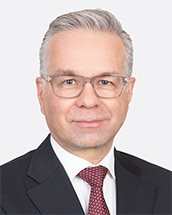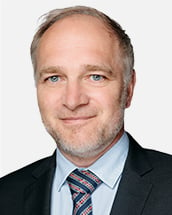The coronavirus pandemic has created a series of unprecedented challenges for fund sponsors and general partners (collectively, GPs) of closed-ended private funds in relation to the capital raising and operation of their funds. This article analyses some of the key issues for GPs to consider in these turbulent times. Further briefings will be published covering open-ended funds and other areas of the private funds sector.
Fundraising
Closing Period
We expect the timelines for fundraising to be impacted by: (a) the uncertainty and market turbulence stemming from the pandemic; (b) liquidity constraints on investors resulting in a reduced appetite to enter into new long-term capital commitments; (c) the challenges for fund investors to undertake their due diligence (in particular, face-to-face meetings), receive appropriate internal approvals and obtain relevant signatures; and (d) to the extent a fund has existing investments in its portfolio, the difficulties around determining the valuation of those investments (see Valuation Considerations during Fundraising below). Accordingly, a GP raising a fund should check the duration of the fund’s closing period and the approvals required to extend it, and evaluate whether it is prudent to build in greater flexibility so as to achieve a successful fundraising.
Investment Policies
The significant market dislocation brought about by COVID-19 will result in some GPs considering alternative investment options such as investing in distressed opportunities. Such GPs will need to revisit their investment policies and investment restrictions to determine whether or not they have the ability to deploy capital into these asset classes, and if not what consents are required from investors to broaden the remit of their investment policies. It should be noted that significant amendments can be difficult to obtain. Those GPs looking to reshape their investment policies should also make sure they fully understand the legal, regulatory and tax considerations of investing into these new asset classes, and where applicable update their private placement memoranda for such risks.
Fund Offering Documents
GPs should consider inserting specific risk factor language regarding the potential impact of COVID-19 into fund offering documents, even if there is already existing risk factor language covering epidemics and pandemics. GPs with fund closings scheduled to take place prior to Q1 2020 financials are available should consider providing appropriate pre-closing disclosures regarding the actual and likely future impact of market conditions on past and future performance and investment valuations. In addition, these disclosures should highlight the ability of the fund to provide financial information to its investors in a timely manner (see Financial Statements below).
Valuation Considerations during Fundraising
Prospective investors considering investing into funds, which already hold assets will be particularly focused on the valuation of those assets and may hold off on committing to the fund until they have a better understanding of those assets’ value. Furthermore, the equalization (or true-up) payment (being the amount paid by later-close investors to existing investors on admission to compensate existing investors for the time their capital has been tied up in the fund) will also be of interest to both existing and prospective investors. In such uncertain times, GPs will be required to be creative to find a solution, which is palatable for all parties concerned.
Regulatory Filings during the Closing Period
GPs should expect that branches of the government will be shut down or suffer significant capacity constraints for the foreseeable future. GPs should make required filings as early as possible to mitigate delays in the fundraising process and should work with the applicable government authority to determine what relief may be offered during this time.
Fund Operation
Investor Meetings
We are seeing GPs either delaying in-person investor (e.g. one-to-one, limited partner advisory committee (LPAC) and annual) meetings or switching to tele- and video-conferences. GPs typically have a material level of discretion over the manner in which such meetings are held. However GPs are encouraged to check the relevant provisions in their fund documents to ensure they are in compliance or, if required to have in person meetings, consider obtaining a waiver from the relevant parties.
Limited Partner Advisory Committee
The volatile market environment will likely result in increasing engagement with the fund’s LPAC. GPs should ensure they understand the remit and duties of the LPAC and maintain a healthy dialogue with this key investor body. In addition, GPs should be alive to the potential conflicts that LPAC members may face and be aware that as is often the case, LPACs have the option to seek legal advice on decisions they are required to make. We expect LPACs to defer to this option as they have to face ever more challenging issues.
Investor Communications
In a time of such uncertainty, GPs should consider reaching out to the existing and prospective investors in their funds to see how they are working through the challenging business environment and whether they have questions. In particular, we recommend that GPs ensure they are being consistent with the types of information and responses that are provided to investors (both existing and prospective) to mitigate selective disclosure issues.
Business Continuity
GPs should ensure that they are complying with and reviewing their own business continuity plans (BCP) and are abreast of applicable BCP regulations. Furthermore, GPs should be checking in with key service providers to confirm that such service providers are continuing to provide consistent service in light of COVID-19 and whether any disruption should be anticipated. Also GPs should consider whether any back-up services are available if one or more service providers were to experience an ongoing interruption of service, in particular for those services that are critical to the proper functioning of the GP’s business.
Valuations
The changing valuations of portfolio companies may impact the calculation of management fees, distribution waterfalls and clawbacks. GPs should pay particular attention to the valuation provisions in their fund documents to ensure compliance. Following this crisis, we expect the U.S. Securities and Exchange Commission (SEC), for example, will look closely at valuations and check that the valuations reflected market conditions (particularly those valuations provided to prospective investors in offering materials)(see Fund Offering Documents above). GPs may also come under pressure from LPs to write down the value of existing portfolio investments and any such write-downs will likely have a negative effect on the management fee after the investment period.
Financial Statements
Many fund-level financial statements rely on the delivery of information from portfolio companies (which may be delayed given the current market volatility). GPs should check their fund documents to determine the deadlines and whether these deadlines are fixed or, alternatively, permit the GP to use its best endeavors (or some other threshold) to satisfy them. GPs should engage with their portfolio companies, auditors and valuation advisors as to the feasibility of meeting the applicable deadlines. In addition, U.S. registered investment advisers (and those registered investment advisers located outside of the U.S.) are required to distribute audited financial statements within 120 days of a private fund’s fiscal year end. The SEC has previously indicated that it would not recommend enforcement action for a violation due to certain unforeseeable circumstances. We are monitoring for further clarification on this point.
Secondaries
We expect that a serious or protracted market downturn will result in an increase in investor-led secondary activity. For example, investors who are facing near term liquidity needs, or are over-exposed to alternative assets due to falls in public securities, will likely seek to resolve these issues by turning to the secondaries market. Likewise, GP-led secondaries, which in recent times have been used in a broader range of scenarios and gained greater acceptance by the private funds sector, will likely provide additional liquidity avenues for investors and/or funds to dispose of certain assets. GPs should consider carefully the relevant laws on the re-sales of interests in funds. Some countries limit the resales only to certain classes of sophisticated investors. GPs should also review their transfer protocol to ensure that neither the GP nor the fund takes on additional liability as a result of these transactions.
Term Extensions
Where a fund is nearing the end of it’s fund term, GPs may want to consider seeking an extension to provide additional time to allow maturing investments to stabilize in the event of a protracted financial downturn. Alternatively, a GP-led secondary may provide a liquidity solution towards the end of the fund term, possibly with investor optionality to exit with cash or roll into a new fund vehicle (see Secondaries above).
Ongoing Regulatory Filing Requirements
We expect regulatory filings to become more challenging for GPs during the COVID-19 pandemic (see also Regulatory Filings during the Closing Period above). Regulators are already providing greater flexibility in the filing of documents. For example, the SEC announced that temporary reliefs for the filing of Forms ADV and Forms PF will be granted for GPs whose operations may be affected by the COVID-19 pandemic. GPs wishing to take advantage of this relief will have to notify the SEC and comply with certain requirements.
Fund Investment
Investment Period Extensions
GPs with a fund nearing the end of its investment period and capital to deploy will need to check whether or not there is sufficient flexibility in the fund’s constitutional document to extend the investment period. GPs should look to act promptly when seeking extensions so as to give themselves sufficient breathing space to draw on the requisite unfunded commitments at the appropriate time. However, typically there is a step down on management fee at the end of the investment period so communication with investors on this point may be central to avoiding issues later.
Additional Funding for Existing Investments
It is likely that we will see portfolio companies requiring additional sources of capital to support them during this challenging time. Fund documents typically impose constraints on the amount and timing of follow-on investments and GPs will need to evaluate the limitations that apply to their funds. If there is limited capacity to access follow-on capital, GPs may need to consider other available sources of finance.
Contingency planning for defaulting investors
GPs should consider what immediate firepower is at their disposal in the case of an investor being unable to meet a capital call. This includes both calling additional capital from non-defaulting investors to make up the difference and employing a subscription facility. GPs should pay attention to the prescribed limitations set out in their fund documents when using such forms of capital.
If you would like to discuss any of the issues raised in this alert please do not hesitate to reach out to us or your Baker McKenzie contact with any questions.






